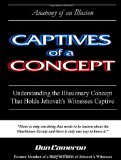Destructive Leaders and Groups
Rick Ross has been working on destructive cults and movements for some time now. I check his site on a regular basis.
Rick has put together a very pointed list of warning signs that you might be dealing with an unsafe group and/or leader. Compare it to the list of signs of a safe group and/or leader.
I’m not sure that the unsafe/safe dichotomy is the best way to describe the difference, but other than that, I think this is a great checklist.
This has obvious applicability to certain religious and political groups and leaders.
Connect the dots.
Ten warning signs of a potentially unsafe group/leader
- Absolute authoritarianism without meaningful accountability.
- No tolerance for questions or critical inquiry.
- No meaningful financial disclosure regarding budget, expenses such as an independently audited financial statement.
- Unreasonable fear about the outside world, such as impending catastrophe, evil conspiracies and persecutions.
- There is no legitimate reason to leave, former followers are always wrong in leaving, negative or even evil.
- Former members often relate the same stories of abuse and reflect a similar pattern of grievances.
- There are records, books, news articles, or television programs that document the abuses of the group/leader.
- Followers feel they can never be "good enough".
- The group/leader is always right.
- The group/leader is the exclusive means of knowing "truth" or receiving validation, no other process of discovery is really acceptable or credible.
Ten warning signs regarding people involved in/with a potentially unsafe group/leader.
- Extreme obsessiveness regarding the group/leader resulting in the exclusion of almost every practical consideration.
- Individual identity, the group, the leader and/or God as distinct and separate categories of existence become increasingly blurred. Instead, in the follower’s mind these identities become substantially and increasingly fused–as that person’s involvement with the group/leader continues and deepens.
- Whenever the group/leader is criticized or questioned it is characterized as "persecution".
- Uncharacteristically stilted and seemingly programmed conversation and mannerisms, cloning of the group/leader in personal behavior.
- Dependency upon the group/leader for problem solving, solutions, and definitions without meaningful reflective thought. A seeming inability to think independently or analyze situations without group/leader involvement.
- Hyperactivity centered on the group/leader agenda, which seems to supercede any personal goals or individual interests.
- A dramatic loss of spontaneity and sense of humor.
- Increasing isolation from family and old friends unless they demonstrate an interest in the group/leader.
- Anything the group/leader does can be justified no matter how harsh or harmful.
- Former followers are at best-considered negative or worse evil and under bad influences. They can not be trusted and personal contact is avoided.
Ten signs of a safe group/leader
- A safe group/leader will answer your questions without becoming judgmental and punitive.
- A safe group/leader will disclose information such as finances and often offer an independently audited financial statement regarding budget and expenses. Safe groups and leaders will tell you more than you want to know.
- A safe group/leader is often democratic, sharing decision making and encouraging accountability and oversight.
- A safe group/leader may have disgruntled former followers, but will not vilify, excommunicate and forbid others from associating with them.
- A safe group/leader will not have a paper trail of overwhelmingly negative records, books, articles and statements about them.
- A safe group/leader will encourage family communication, community interaction and existing friendships and not feel threatened.
- A safe group/leader will recognize reasonable boundaries and limitations when dealing with others.
- A safe group/leader will encourage critical thinking, individual autonomy and feelings of self-esteem.
- A safe group/leader will admit failings and mistakes and accept constructive criticism and advice.
- A safe group/leader will not be the only source of knowledge and learning excluding everyone else, but value dialogue and the free exchange of ideas.
Don’t be naïve, develop a good BS Detector.
You can protect yourself from unsafe groups and leaders by developing a good BS detector.
Check things out, know the facts and examine the evidence. A safe group will be patient with your decision making process. If a group or leader grows angry and anxious just because you want to make an informed and careful decision before joining; beware.


